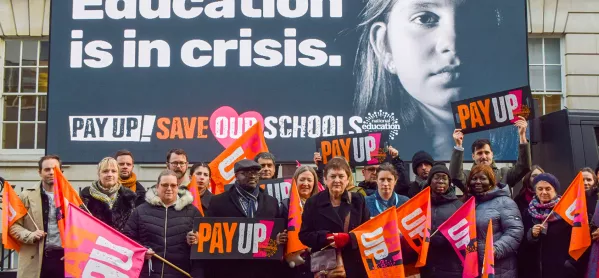Talks over teacher pay between unions and officials at the Department for Education are scheduled to take place for six hours today.
It will be the second time unions have held talks with the DfE this week after the NEU teaching union announced that teachers would go on strike from 1 February.
Speaking on BBC One’s Breakfast this morning ahead of the talks, schools minister Nick Gibb insisted that the government does understand the pressures teachers are facing and is willing to negotiate - but warned against “inflation-busting pay settlements”.
Mr Gibb said that officials would be spending six hours with four education unions, “discussing the issues that we discussed on Wednesday, and the secretary of state said they could start discussing issues like pay but also other issues such as workload and the conditions of teachers in schools”.
“So, you know, we do understand the pressures that teachers are under,” he added.
Mr Gibb reiterated the government’s often-repeated point that it does not want to give “inflation-busting pay settlements that mean that we end up embedding inflation into our economy for the longer term, which has a hugely damaging effect”.
He added: “We are negotiating with teachers and all the public service unions across Whitehall, across the economy, to discuss issues like pay, to discuss issues such as workload. There is an independent pay review body in place to determine pay levels for teachers.”
Teacher pay talks ‘a step forward’
Geoff Barton, general secretary of the Association of School and College Leaders (ASCL), told Sky News: “I think there’s been a bit of a frustration, if I’m honest; that it feels like if you’re the secretary of state for education, you’re not supposed to talk about negotiation because you’re putting all your faith in the independent review bodies.”
He said that while his union supports the principle of independent pay review bodies, it “questions a little bit whether ‘independent’ is independent”.
Regarding the planned strikes by members of the NEU teachers’ union in the coming weeks, he said: “The reason that some teachers are talking about industrial action is not because of what an independent pay review body may choose to do around pay next year, it’s because of the way they’re being paid now.”
He added: “In particular, we want to see teaching become a more high-profile, high-status profession. Pay and conditions are part of that. I’m hoping that what we get from today is a sense of talking about those real and genuine issues rather than skirting around them, and not thinking that this is purely a post-Covid thing. This has been a decade in the making.
“It’s good, in one sense, that we’ve got six hours of talks. That’s a long time, I have to say: six hours of talks where pay is the number one issue on the agenda. That feels to me like it is a step forward.”
Talks earlier this week ended with “no progress” being made, according to union bosses, with reports that the two sides were ”no nearer a solution”.




